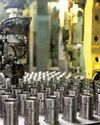
Happiness, & its Measurement
The rich are generally happier than the poor. Money can increase happiness by enhancing both the ability and access to meet needs, fulfil desires. It provides the tools to solve problems. Equally true is that higher income fails to increase happiness beyond a certain level.
A Crux study covering 18,000 adults across four socio-economic groups provides an insight into a strong correlation between happiness, and several correlates of happiness. It highlights that happiness is complex. The Rich tend to be happier, and yet prioritising money over time has actually the opposite effect; and undermines happiness. A modest form of generosity makes people happier than spending the same amount on themselves.
Happiness is unwieldly, difficult to measure, given the multidimensional phenomenon. Several factors affect individual well-being, with income, employment, marriage, education, as important determinants. Equally, good and cordial' relationships, health, social support, self-esteem, leisure, opportunities and access to favourite' activities, social participation is both a source and factor of happiness.
The study articulates that money in the bank has a larger bearing on happiness than income. Even a tenth of an annual income in the bank is a bliss. Those in debt expressed a disproportionate level of dissatisfaction, with over 80 per cent of the respondents who had 'availed' of personal loans feeling anxious, even unhappy.
Similarly, those who experienced' holidays, trips, reunions, or were gifted' were happier than those who used an equal amount to buy 'things' or gadgets. Over 90 per cent of the respondents in the top income decile (juggling and multi-tasking) expressed that they would 'trade' time and leisure for money.
This story is from the {{IssueName}} edition of {{MagazineName}}.
Start your 7-day Magzter GOLD free trial to access thousands of curated premium stories, and 9,000+ magazines and newspapers.
Already a subscriber ? Sign In
This story is from the {{IssueName}} edition of {{MagazineName}}.
Start your 7-day Magzter GOLD free trial to access thousands of curated premium stories, and 9,000+ magazines and newspapers.
Already a subscriber? Sign In

MEMORIES & IMPRESSIONS
Ratan Tata was an exceptional human being. He was a visionary leader, esteemed industrialist, and a humanitarian, who left an indelible mark on India and the world.

The Robotaxi Market
The robotaxi market is shaping up to be a high-stakes battleground as tech giants and automakers race to transform urban mobility.

And the Nobel Prize Goes to AI
The recent Nobel Prize T awards to AI pioneers affiliated with Google have sparked a broader conversation about Big Tech's influence on research and the limitations of traditional prize categories.

Ola Electrified
Once considered a trailblazer in India’s electric vehicle (EV) ecosystem, Bhavish Aggarwal’s Ola Electric now faces a major accountability crisis.

Sharp Slide in Industrial Output on Eve of Deepavali
India’s index of industrial production (IIP) saw a sharp reversal in August, contracting by 0.1 per cent, in stark contrast to the 4.7 per cent growth in July, mostly because of significant contractions in mining and electricity generation.

Heralding the Solar Era with Sustainable Electrification
RAJEEV KASHYAP on the economics of solar power, the hurdles in scaling it, and much more

A WELL-GREASED MACHINE
The OmniBook X14 laptop runs on first-generation Snapdragon X Elite, which bets big on Al-enabled productivity and battery life, but falls short when it comes to overall experience, says Deep Majumdar

DO NOT LETA HEALTH CRISIS RUIN YOUR FINANCIAL HEALTH
For a family of four living in a metro, it is recommended to opt for a family floater health insurance plan with a sum insured of at least Rs 15-20 lakh

Disruption Ahead: Beyond Organisation Charts and Structures
ALBERT EINSTEIN FAMOUSLY said, “We cannot solve our problems with the same thinking we used when we created them.

Dr. Rahul Shivajirao Kadam: A Visionary Leader Blending Sustainability, Innovation, And Social Empowerment
We are on the stage of global warming, and these technologies not only help prevent further damage but also leave behind a better environment for future generations.